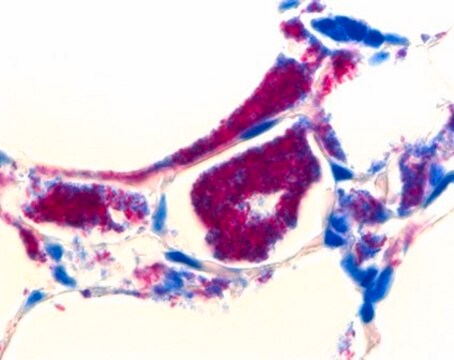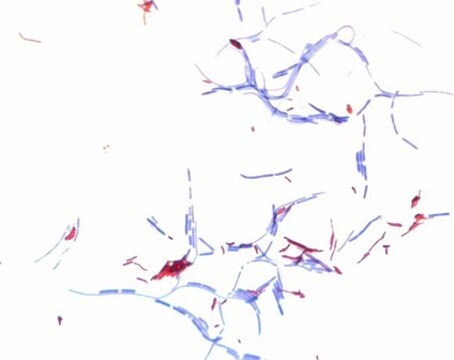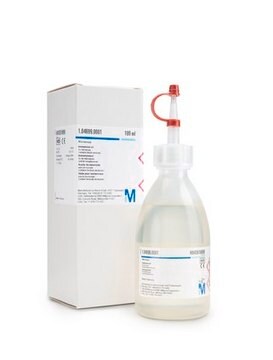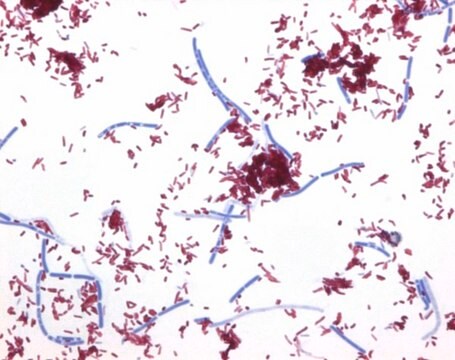1.00327
Hydrogen chloride solution
in ethanol, for microscopy
Synonim(y):
Hydrogen chloride – ethanol solution, Hydrogen chloride solution, Hydrochloric acid in ethanol
About This Item
Polecane produkty
product name
Hydrogen chloride solution, in ethanol, for microscopy
Poziom jakości
Postać
liquid
IVD
for in vitro diagnostic use
metody
microbe id | staining: suitable
pH
1.0 (20 °C in H2O)
temp. przejścia
flash point 21 °C
gęstość
0.90 g/cm3 at 20 °C
Zastosowanie
clinical testing
diagnostic assay manufacturing
hematology
histology
temp. przechowywania
2-30°C
ciąg SMILES
Cl
InChI
1S/ClH/h1H
Klucz InChI
VEXZGXHMUGYJMC-UHFFFAOYSA-N
Szukasz podobnych produktów? Odwiedź Przewodnik dotyczący porównywania produktów
Opis ogólny
Pretreatment of the specimens with Sputofluol™ dissolves the bacteria from the surrounding viscid sputum and cell material. It is an IVD and CE registered product and can be applied for diagnostical purposes. For more details, please see instructions for use (IFU). The IFU can be downloaded from this webpage.
Zastosowanie
Informacje prawne
Hasło ostrzegawcze
Danger
Zwroty wskazujące rodzaj zagrożenia
Zwroty wskazujące środki ostrożności
Klasyfikacja zagrożeń
Eye Irrit. 2 - Flam. Liq. 2 - Met. Corr. 1
Kod klasy składowania
3 - Flammable liquids
Klasa zagrożenia wodnego (WGK)
WGK 1
Temperatura zapłonu (°F)
69.8 °F
Temperatura zapłonu (°C)
21 °C
Certyfikaty analizy (CoA)
Poszukaj Certyfikaty analizy (CoA), wpisując numer partii/serii produktów. Numery serii i partii można znaleźć na etykiecie produktu po słowach „seria” lub „partia”.
Masz już ten produkt?
Dokumenty związane z niedawno zakupionymi produktami zostały zamieszczone w Bibliotece dokumentów.
Powiązane treści
Przegląd nauki i praktyki bakteriologii w diagnostyce klinicznej. Dowiedz się więcej o zastosowaniu standardowych i specjalnych barwników do analizy mikroskopowej.
Przegląd nauki i praktyki bakteriologii w diagnostyce klinicznej. Dowiedz się więcej o zastosowaniu standardowych i specjalnych barwników do analizy mikroskopowej.
An overview of the science and practice of bacteriology in clinical diagnostics. Learn more about the application of standard and special stains for microscopic analysis.
Nasz zespół naukowców ma doświadczenie we wszystkich obszarach badań, w tym w naukach przyrodniczych, materiałoznawstwie, syntezie chemicznej, chromatografii, analityce i wielu innych dziedzinach.
Skontaktuj się z zespołem ds. pomocy technicznej







